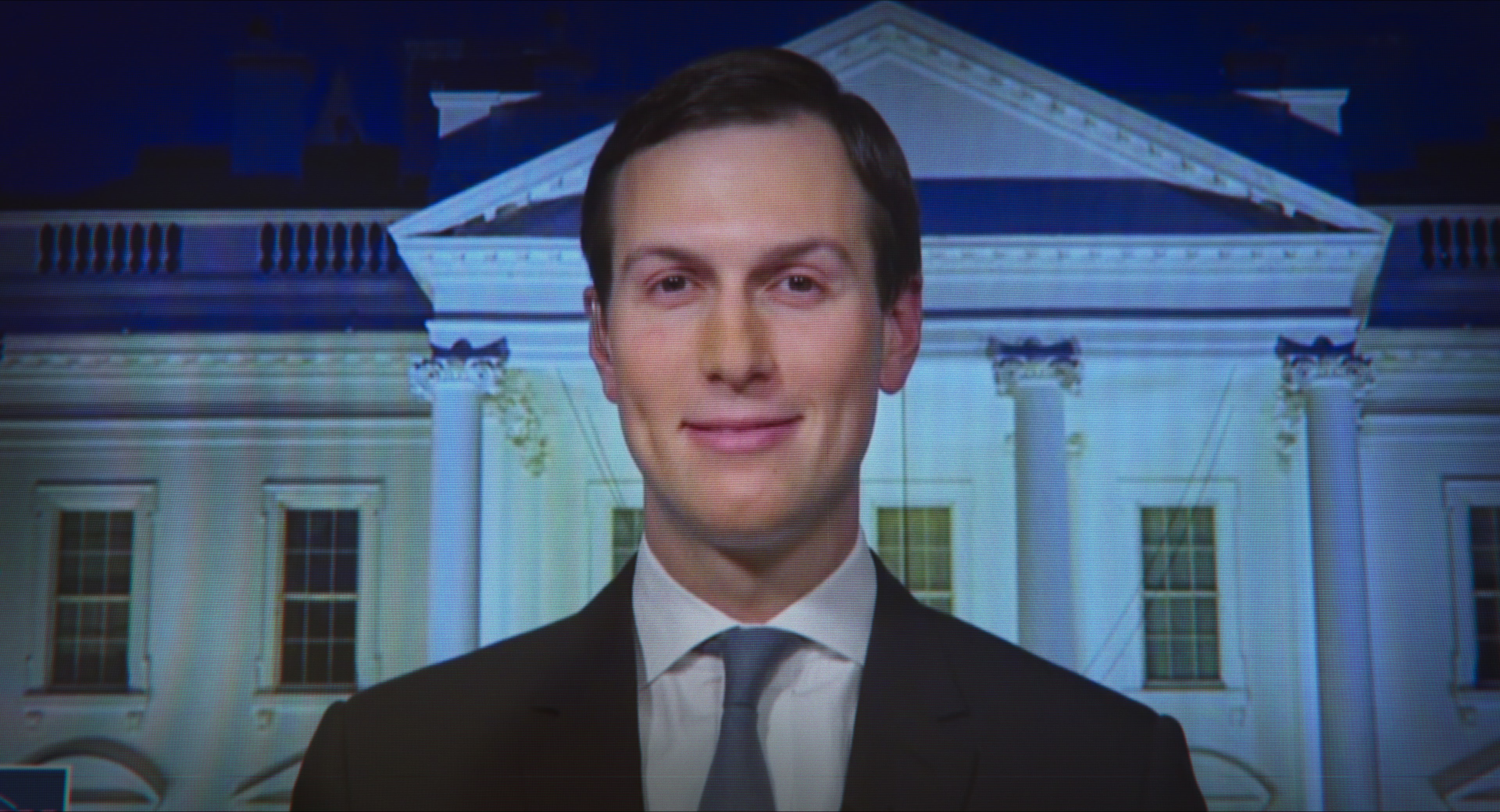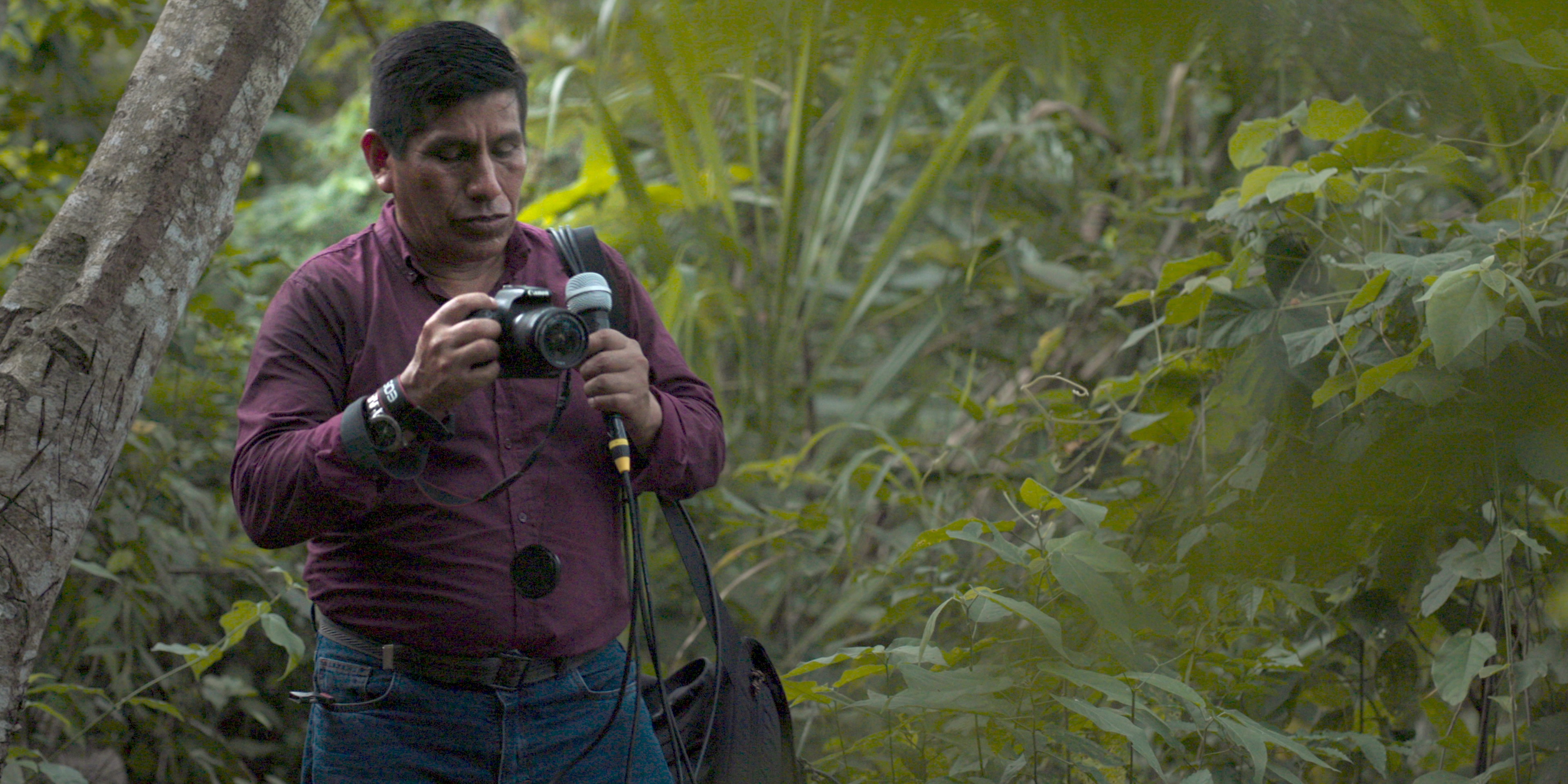Clearly, no one involved with “Dirty Money” knew precisely what environment Season 2 of the Netflix documentary series would be dropped into upon release. After first debuting in early 2018, the intervening 26 months have seen the number of significant financial developments dovetail, some brewing underneath the sociopolitical surface for the entire time and others with a much quicker and more recent onset.
The explicit purpose of this series, produced by prolific documentary filmmaker Alex Gibney, is to illuminate financial malpractice on various levels. In Season 2, different episodes detail international tales of money laundering, drug trafficking, environmental pollution, and elder abuse, all of which have figures at their centers absorbing a majority of the blame.
Through a more immediate lens, there’s another overriding takeaway, one that’s become more pronounced in an age of saturation on all fronts: It’s far more difficult to ignore or explain away a problem when there’s a visual way to process the ramifications. Much as outlets right now are juggling the proper way to represent the ongoing spread of a contagious viral disease, most of these subjects become considerably less abstract when they’re seen, not just heard.
Another constant refrain of “Dirty Money” is that these predatory financial practices, whether designed to drain funds from the trusts of the wealthy elderly, misrepresent the nature of internationally accessed shell companies, or make a bank’s bottom line more appealing to its shareholders, are designed to be impenetrable. The extra fees shoehorned into what a tenant owes per month are set up to be exploited by large organizations with minimal to no explanation.

“Dirty Money”
Netflix
That all points to a thesis — backed by both anecdotal and primary source evidence — that the financial world offers easy access to cheaters and swindlers, but it takes expertise and knowledge to spot the trends of manipulation. The existing framework, where the person under scrutiny is seen in archival footage touting their services on TV airtime or at some public Q&A being feted for their participation, is welcoming of a figure who looks to control their own narrative. “Dirty Money” frequently shows the uphill battle on the part of investigative journalists to unravel this thorny damage with months (and in some cases years) of reporting.
Though both employ some of the same stylistic foundations, “Dirty Money” is an interesting contrast to the spate of true crime series both on the platform and beyond. If other stories about grisly murders and long-gestating unsolved felony cases give an opportunity to appease a certain fascination with stories on an individual scale, “Dirty Money” takes that lens and applies it to much larger systems. “Dirty Money” still centers many of these Season 2 episodes by showing the people who’ve suffered the consequences of inaction elsewhere. Still, there’s a sense that in the way tales of serial killers give us the chance to compartmentalize the worst of humanity, these corruption narratives swing all the way back to the idea that the pursuit of wealth not only exacerbates some of those same destructive instincts, they’re baked into the fabric of American society at almost every level.
It’s that ubiquity that makes this Season 2 cross-section so effective. It’s not just the conditions of apartments in major metropolitan areas, it’s the disregard for the quality of life for residents of a fishing community right on the Gulf of Mexico. What you buy, how you buy it, the methods of transporting those purchases and the institutions that facilitate them: all are vulnerable to corner-cutting measures that line pockets at the expense of unseen victims.

“Dirty Money”
Netflix
Bringing these stories to the screen are a collection of documentary filmmakers that are often natural fits for their individual subjects. Margaret Brown, whose 2014 film “The Great Invisible” looked at what led to the devastating Deepwater Horizon oil rig explosion, here turns her attention to the people of Point Comfort, Texas who revolted against a plastics company’s deceptive manufacturing protocols. Daniel DiMauro and Morgan Pehme, two of the directors behind “Get Me Roger Stone” look at other significant supporting player in the current presidential administration: Jared Kushner.
Brown’s installment, along with Stephen Maing’s look at the mystifying process by which government-backed gold reserves are becoming the preferred fund-cleaning method for international drug trafficking operations, are the best episodes of the season by virtue of the way they straddle Gibney’s Jigsaw Films house style while making something more immersive and immediate. “Dirty Money” episodes tend to function as cleanly produced explainers, recounting chapters from the recent past while nodding to their ramifications in the present. Whenever the show has an opportunity to roust itself from the more clinical on-camera interviews and chart firsthand some of these aftereffects, there’s a sharper final product.
What that product also puts into focus is another idea that’s gained more traction in the time between “Dirty Money” seasons: long term costs almost always outweigh the short term savings. It’s an idea that’s been attributed to structural solutions to climate change, the shortcomings of the American health care system, and can now be seen in a political world where the Consumer Financial Protection Bureau has been gutted and regulations have been lifted across countless sectors of daily life.
Some of these stories in “Dirty Money” detail the costs that go far beyond what can be put in a bank account. Beyond the damage to Wells Fargo customer’s credit scores, there’s the pain of seeing loved ones mistreated and the anxiety that companies perpetuate through practices they know to be predatory. Maybe most profoundly, in the fourth episode of Season 2, there’s the work of an independent Peruvian journalist detailing the number of deaths at the hands of those who’ve tried to keep the region’s illicit activities quiet. If “Dirty Money” is a series designed to shock, it manages to put enough in front of viewers’ eyes to do so.
Grade: B+
“Dirty Money” Season 2 is now available to stream on Netflix.
The explicit purpose of this series, produced by prolific documentary filmmaker Alex Gibney, is to illuminate financial malpractice on various levels. In Season 2, different episodes detail international tales of money laundering, drug trafficking, environmental pollution, and elder abuse, all of which have figures at their centers absorbing a majority of the blame.
Through a more immediate lens, there’s another overriding takeaway, one that’s become more pronounced in an age of saturation on all fronts: It’s far more difficult to ignore or explain away a problem when there’s a visual way to process the ramifications. Much as outlets right now are juggling the proper way to represent the ongoing spread of a contagious viral disease, most of these subjects become considerably less abstract when they’re seen, not just heard.
Another constant refrain of “Dirty Money” is that these predatory financial practices, whether designed to drain funds from the trusts of the wealthy elderly, misrepresent the nature of internationally accessed shell companies, or make a bank’s bottom line more appealing to its shareholders, are designed to be impenetrable. The extra fees shoehorned into what a tenant owes per month are set up to be exploited by large organizations with minimal to no explanation.

“Dirty Money”
Netflix
That all points to a thesis — backed by both anecdotal and primary source evidence — that the financial world offers easy access to cheaters and swindlers, but it takes expertise and knowledge to spot the trends of manipulation. The existing framework, where the person under scrutiny is seen in archival footage touting their services on TV airtime or at some public Q&A being feted for their participation, is welcoming of a figure who looks to control their own narrative. “Dirty Money” frequently shows the uphill battle on the part of investigative journalists to unravel this thorny damage with months (and in some cases years) of reporting.
Though both employ some of the same stylistic foundations, “Dirty Money” is an interesting contrast to the spate of true crime series both on the platform and beyond. If other stories about grisly murders and long-gestating unsolved felony cases give an opportunity to appease a certain fascination with stories on an individual scale, “Dirty Money” takes that lens and applies it to much larger systems. “Dirty Money” still centers many of these Season 2 episodes by showing the people who’ve suffered the consequences of inaction elsewhere. Still, there’s a sense that in the way tales of serial killers give us the chance to compartmentalize the worst of humanity, these corruption narratives swing all the way back to the idea that the pursuit of wealth not only exacerbates some of those same destructive instincts, they’re baked into the fabric of American society at almost every level.
It’s that ubiquity that makes this Season 2 cross-section so effective. It’s not just the conditions of apartments in major metropolitan areas, it’s the disregard for the quality of life for residents of a fishing community right on the Gulf of Mexico. What you buy, how you buy it, the methods of transporting those purchases and the institutions that facilitate them: all are vulnerable to corner-cutting measures that line pockets at the expense of unseen victims.

“Dirty Money”
Netflix
Bringing these stories to the screen are a collection of documentary filmmakers that are often natural fits for their individual subjects. Margaret Brown, whose 2014 film “The Great Invisible” looked at what led to the devastating Deepwater Horizon oil rig explosion, here turns her attention to the people of Point Comfort, Texas who revolted against a plastics company’s deceptive manufacturing protocols. Daniel DiMauro and Morgan Pehme, two of the directors behind “Get Me Roger Stone” look at other significant supporting player in the current presidential administration: Jared Kushner.
Brown’s installment, along with Stephen Maing’s look at the mystifying process by which government-backed gold reserves are becoming the preferred fund-cleaning method for international drug trafficking operations, are the best episodes of the season by virtue of the way they straddle Gibney’s Jigsaw Films house style while making something more immersive and immediate. “Dirty Money” episodes tend to function as cleanly produced explainers, recounting chapters from the recent past while nodding to their ramifications in the present. Whenever the show has an opportunity to roust itself from the more clinical on-camera interviews and chart firsthand some of these aftereffects, there’s a sharper final product.
What that product also puts into focus is another idea that’s gained more traction in the time between “Dirty Money” seasons: long term costs almost always outweigh the short term savings. It’s an idea that’s been attributed to structural solutions to climate change, the shortcomings of the American health care system, and can now be seen in a political world where the Consumer Financial Protection Bureau has been gutted and regulations have been lifted across countless sectors of daily life.
Some of these stories in “Dirty Money” detail the costs that go far beyond what can be put in a bank account. Beyond the damage to Wells Fargo customer’s credit scores, there’s the pain of seeing loved ones mistreated and the anxiety that companies perpetuate through practices they know to be predatory. Maybe most profoundly, in the fourth episode of Season 2, there’s the work of an independent Peruvian journalist detailing the number of deaths at the hands of those who’ve tried to keep the region’s illicit activities quiet. If “Dirty Money” is a series designed to shock, it manages to put enough in front of viewers’ eyes to do so.
Grade: B+
“Dirty Money” Season 2 is now available to stream on Netflix.

